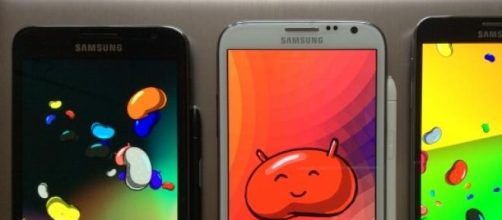World domination is getting real for the two main mobile operating systems, Android and iOS. Combined, the rivals have just hit a new high, gobbling up 96.3% of the worldwide market in the fourth quarter of 2014, according to new data by IDC.
How did they extend the lead? "Instead of a battle for the third ecosystem after Android and iOS, 2014 yielded skirmishes, with Windows Phone edging out BlackBerry, Firefox, Sailfish and the rest", said Melissa Chau, senior research manager with IDC's worldwide quarterly mobile phone tracker. The result is that none of these platforms made the kind of gains needed to challenge the top two.
Android is, of course, the master of this ship: the open-source OS owned 76.6% of the market in the last quarter of 2014, the much valued holiday season for device makers, and 81.5% in the full calendar year. It also grew faster year-on-year than the rest of the market, 32% vs 27.7%.
"A combination of strong end-user demand, refreshed product portfolios, and the availability of low-cost devices - particularly for Android - drove volumes higher", explains Ramon Llamas, research manager with IDC's mobile phone team.
Samsung remained the leader, selling more units than the next five vendors combined. But IDC notes that the South-Korean company's total volume for the year "remained essentially flat." The most growth for Google's OS came from other Asian vendors, including Huawei, Lenovo (which owns Motorola), LG Electronics, Xiaomi, and ZTE.
IDC stresses that over one billion Android devices were sold in 2014, "a significant milestone by itself" and an increase from 2013, already a great year for the OS.
Apple's operating system got a real bump in the last quarter, outpacing the growth of the market by 46.1% vs 29.2%. The climb is mostly due to the success of the new models, iPhone 6 and iPhone 6 Plus. iOS ended the quarter with 19.7% market share, a substantial rise comparing to the same period of 2013. As for the full year of 2014, the OS retained 14.8%, a slight decrease from 2013 even though the volumes were much higher - which is explained by the growth of the overall smartphone market
"What remains to be seen is how Apple will sustain demand going forward, as larger screens were among the last gaps in its product portfolio", IDC wonders.
Nothing Microsoft has done was enough to push the leaders out of the way. After buying Nokia's mobile division, the company still managed to grow only 4.2% year-on-year. IDC believes things could change later this year, when Microsoft introduces the new Windows 10. "Windows Phone stands to make a more concerted effort to return to the high end of the market," the market intelligence company states.
As for BlackBerry, the horror story continues. It was the only decline among all leading operating systems, falling -69.8% from 2013 levels. CEO John Chen is making a lot of efforts to turn the company around and make the platform relevant again, but in 2014, BlackBerry shipped only 5.8 million units.
IDC quotes the CEO, who believes 10 million BlackBerry units will be shipped this year, a 72% increase from 2014. If that happens, the Canadian brand will return to profitability.
The analyst's prediction
"What will bear close observation is how the two operating systems fare in 2015 and beyond," says Llamas. "Now that Apple has entered the phablet market, there are few new opportunities for the company to address." Meanwhile, he adds, Samsung has experienced flat growth in 2014, "forcing Android to rely more heavily on smaller vendors to drive volumes higher."

